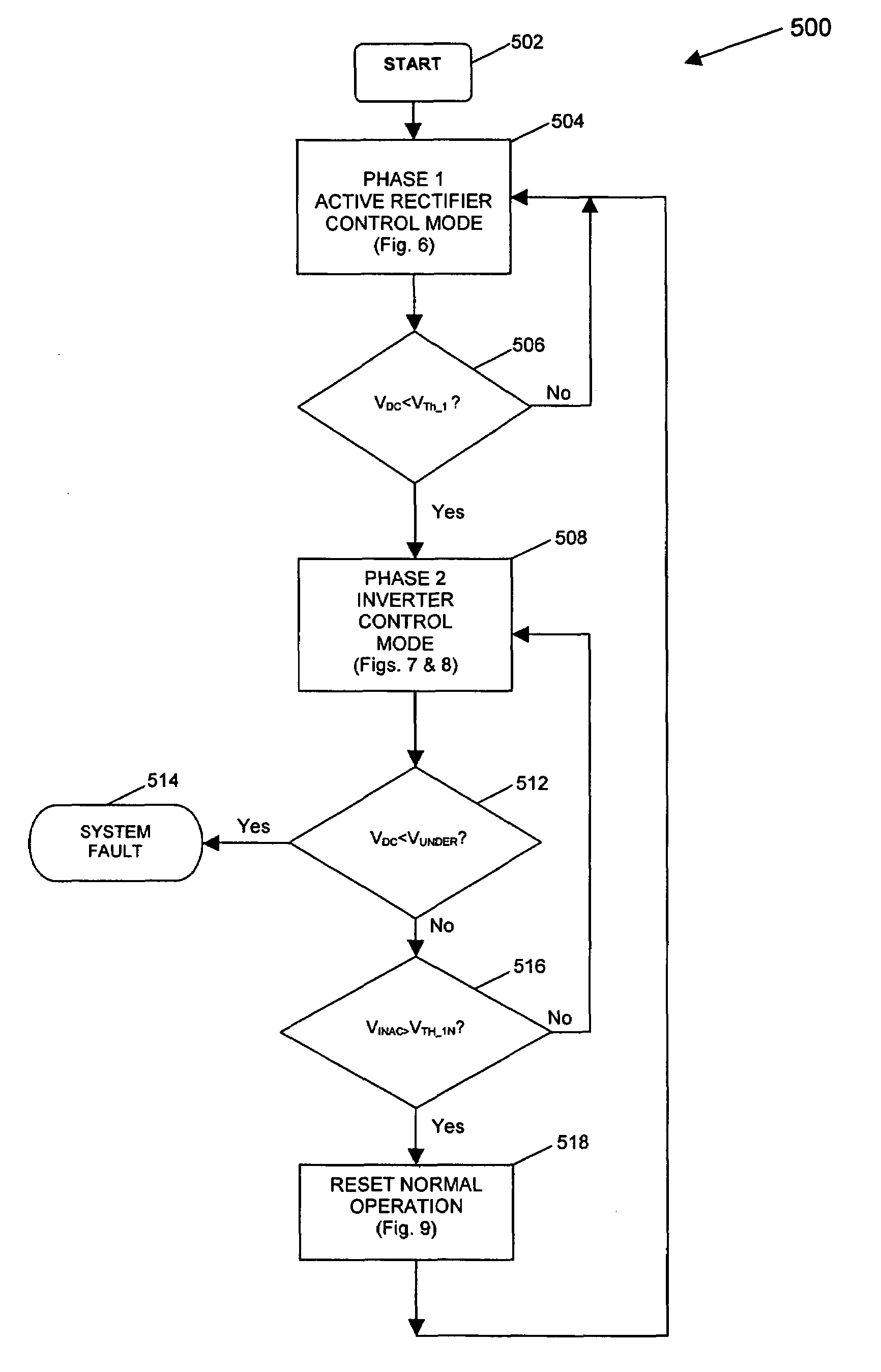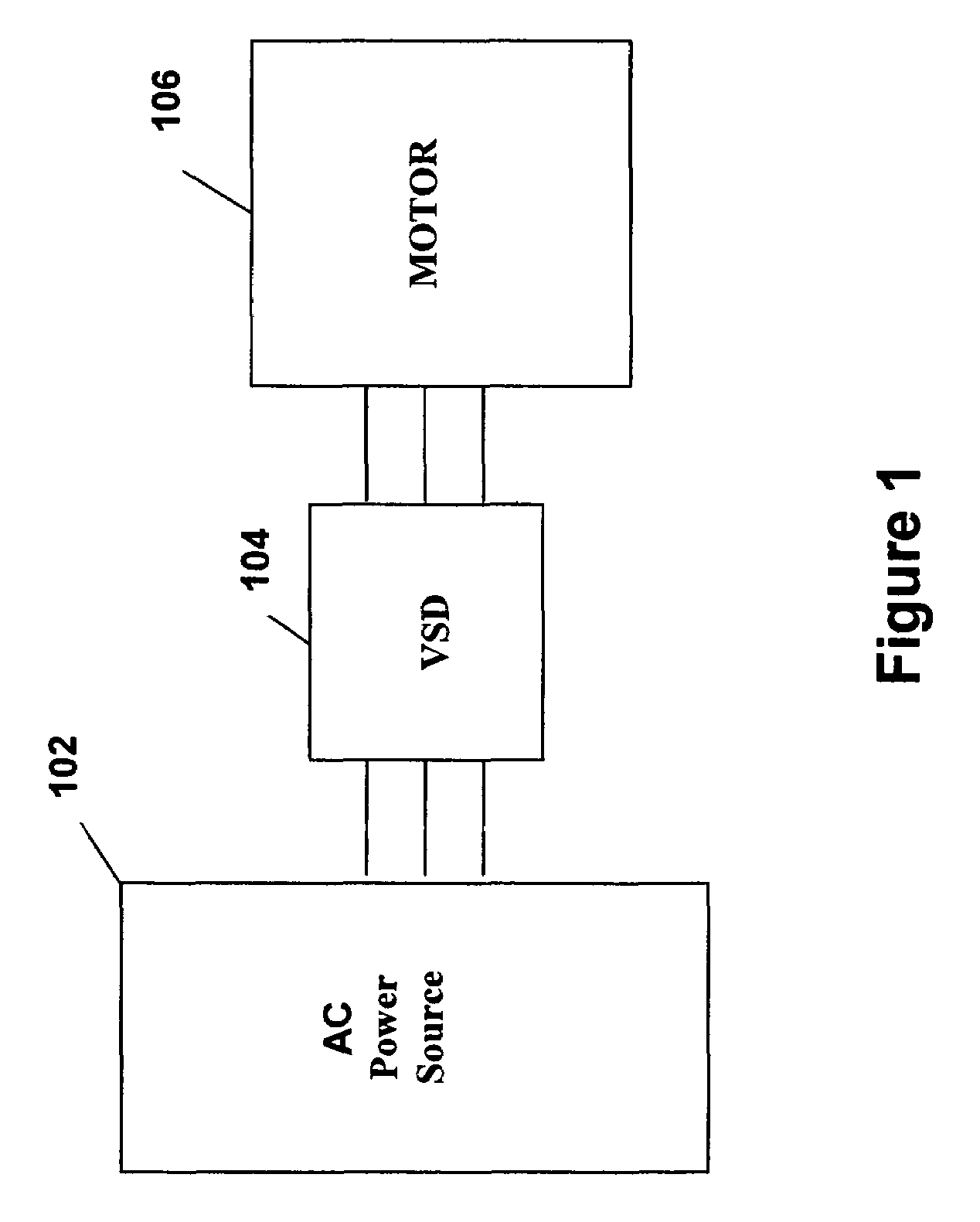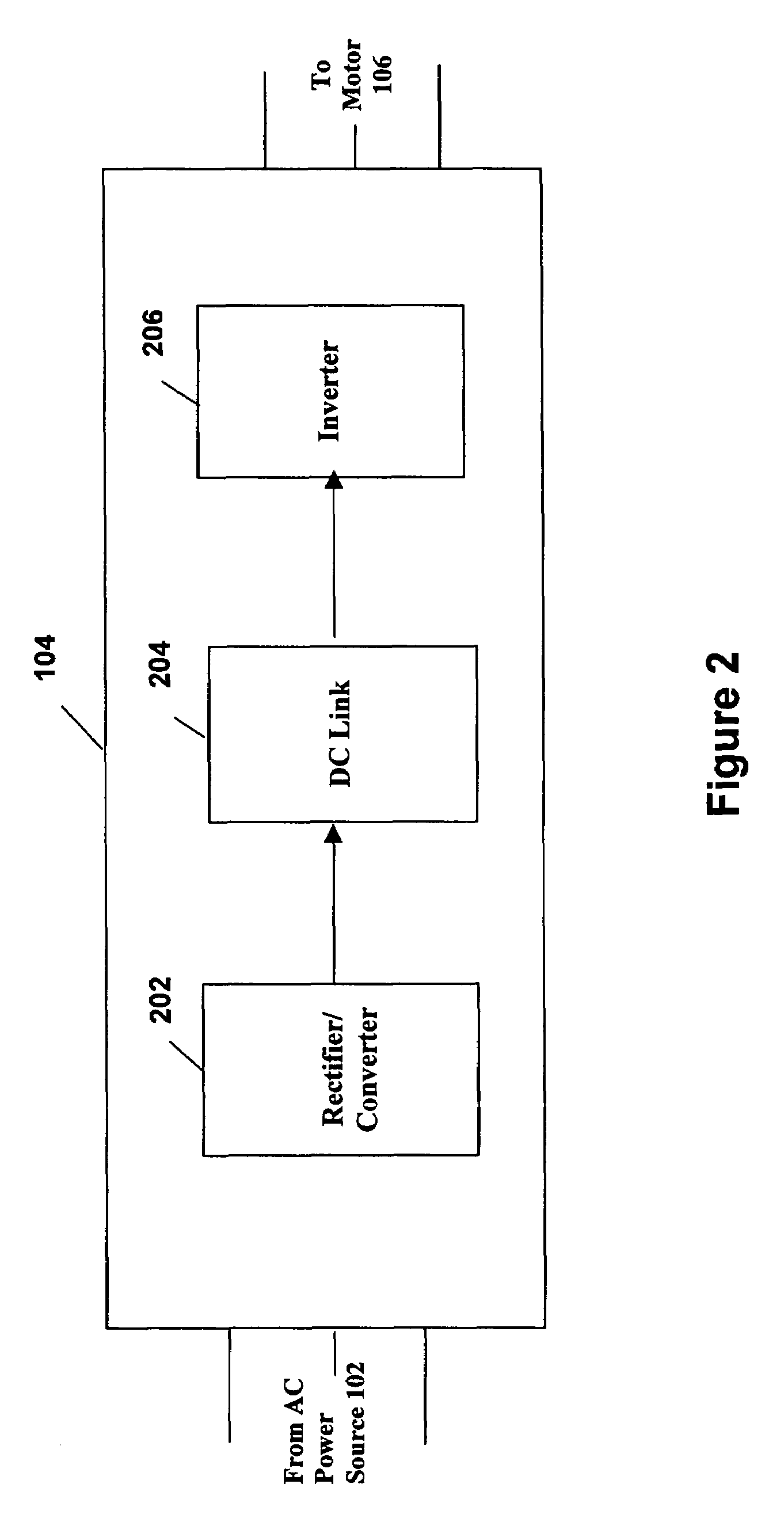Ride-through method and system for HVACandR chillers
a technology of hvacandr chiller and ride-through method, which is applied in the direction of motor/generator/converter stopper, dynamo-electric gear control, dynamo-electric converter control, etc., can solve the problems of dc link voltage to sag, voltage sag, voltage sag, etc., to prevent the chiller system from shutting down, reduce the discharge of dc link capacitors, and improve the ride-through capacity
- Summary
- Abstract
- Description
- Claims
- Application Information
AI Technical Summary
Benefits of technology
Problems solved by technology
Method used
Image
Examples
Embodiment Construction
[0027]FIG. 1 illustrates generally the system configuration of the present invention. An AC power source 102 supplies fixed voltage and frequency AC power to a variable speed drive (VSD) 104, which in turn, supplies variable voltage and frequency AC power to a motor 106. The motor 106 is preferably used to drive a corresponding compressor of a refrigeration or chiller system (see generally, FIG. 3). The AC power source 102 provides single phase or multi-phase (e.g., three phase), fixed voltage, and fixed frequency AC power to the VSD 104 from an AC power grid or distribution system that is present at a site. The AC power grid can be supplied directly from an electric utility or can be supplied from one or more transforming substations between the electric utility and the AC power grid. The AC power source 102 can preferably supply a three phase AC voltage or line voltage of 200 V, 230 V, 380 V, 460 V, or 575 V, at a line frequency of 50 Hz or 60 Hz to the VSD 104 depending on the co...
PUM
 Login to View More
Login to View More Abstract
Description
Claims
Application Information
 Login to View More
Login to View More - R&D
- Intellectual Property
- Life Sciences
- Materials
- Tech Scout
- Unparalleled Data Quality
- Higher Quality Content
- 60% Fewer Hallucinations
Browse by: Latest US Patents, China's latest patents, Technical Efficacy Thesaurus, Application Domain, Technology Topic, Popular Technical Reports.
© 2025 PatSnap. All rights reserved.Legal|Privacy policy|Modern Slavery Act Transparency Statement|Sitemap|About US| Contact US: help@patsnap.com



